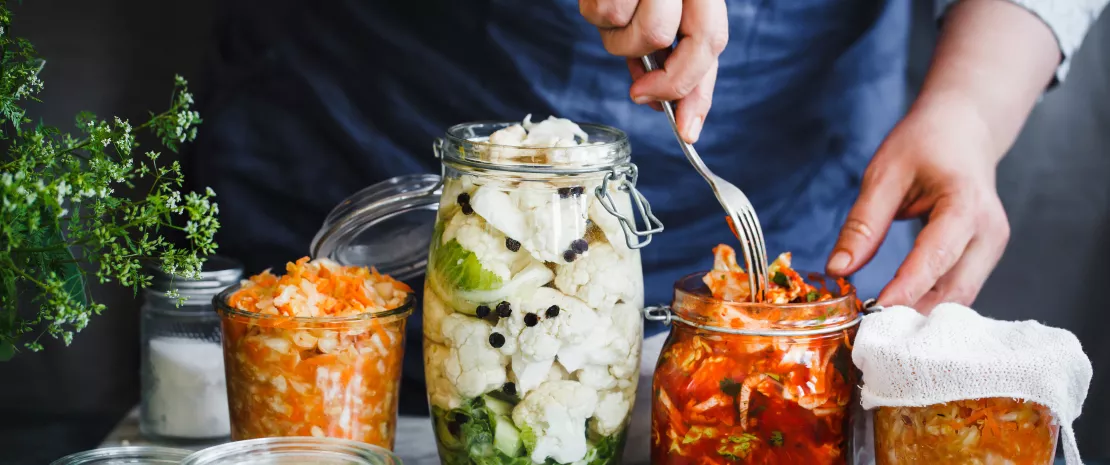The psychobiotic diet: modulating gut microbiota to reduce stress
A study published in Molecular Psychiatry reveals that a diet emphasizing foods with an effect on brain processes via gut microbiota may reduce perceived stress in just 4 weeks. Based on their results, the authors believe that nutritional approaches aimed at modulating gut microbiota may improve mental health.
Lay public section
Find here your dedicated section
Sources
This article is based on scientific information

About this article
Numerous scientific studies have highlighted the involvement of gut microbiota in brain processes, mental health, behavior and cognitive function. They have opened a door for psychobiotics, i.e. interventions that impact the brain by modulating gut microbiota. Prebiotics and probiotics have already shown promising results in animal and human studies. Moreover, it is known that diet plays a major role in the composition of gut microbiota and is thought be involved in certain mental disorders.
Xpeer course: The rationale behind why and how to choose a probiotic
A menu rich in prebiotics is beneficial to gut microbiota
Most studies of gut microbiota-host interactions focus on the effect of supplementation with certain foods. An Irish team decided to measure the effect of a psychobiotic diet through a single-blind, randomized, controlled clinical study. Over 4 weeks, the impact of this diet on gut microbiota, mood and perceived stress was evaluated. The researchers enrolled 24 participants and 21 healthy adult controls (18-59 years of age). The first group was offered a diet that included whole grains (5 to 8 servings), fruits and vegetables high in prebiotics (6 to 8 servings of onions, lettuce, cabbage, apple, etc.), other vegetables (3 to 4 servings) and fermented foods (2 to 3 servings of sauerkraut, kefir or kombucha) each day. They were asked to reduce sweets, sodas and fast food. Participants also received general dietary advice: food pyramid, daily calorie recommendations according to sex, etc. The control subjects received only this dietary advice. Stress experienced by all subjects was self-assessed using Cohen’s Perceived Stress Scale (PSS) at inclusion and at the end of the study.
A decrease in stress and changes in bacterial metabolic activity
At the end of the 4 weeks, both groups had benefited from the change in eating habits, with a decrease in perceived stress levels. However, this reduction was significant only in the psychobiotic diet group. In addition, the reduction in PSS score was correlated with the degree of adherence to the psychobiotic diet. Slight differences in the composition of the gut microbiota of the psychobiotic group compared to inclusion were observed (increase in Blautia wexlerae and B. obeum, decrease in Coprococcus comes, Dorea longicatena, Eubacterium rectale, Gemmiger formicilis and Bifidobacterium longum). However, metabolomic analysis revealed a significant change in 40 lipid metabolites in the psychobiotic diet group and not in the control group. This change could result from the reduced dietary fat intake associated with the psychobiotic diet, but may also suggest that gut microbiota influences mood by regulating lipid metabolism.
Results that will feed future nutritional recommendations?
According to the authors, the development of psychobiotic approaches that modulate the gut-brain axis offers possibilities for reducing stress and associated disorders. Larger studies must not only confirm the effect of such a diet on stress, but also clarify the underlying mechanisms and the role of gut microbiota in these benefits. Their results could give dietary interventions a bigger role in future nutritional recommendations for the prevention or treatment of mental disorders.








